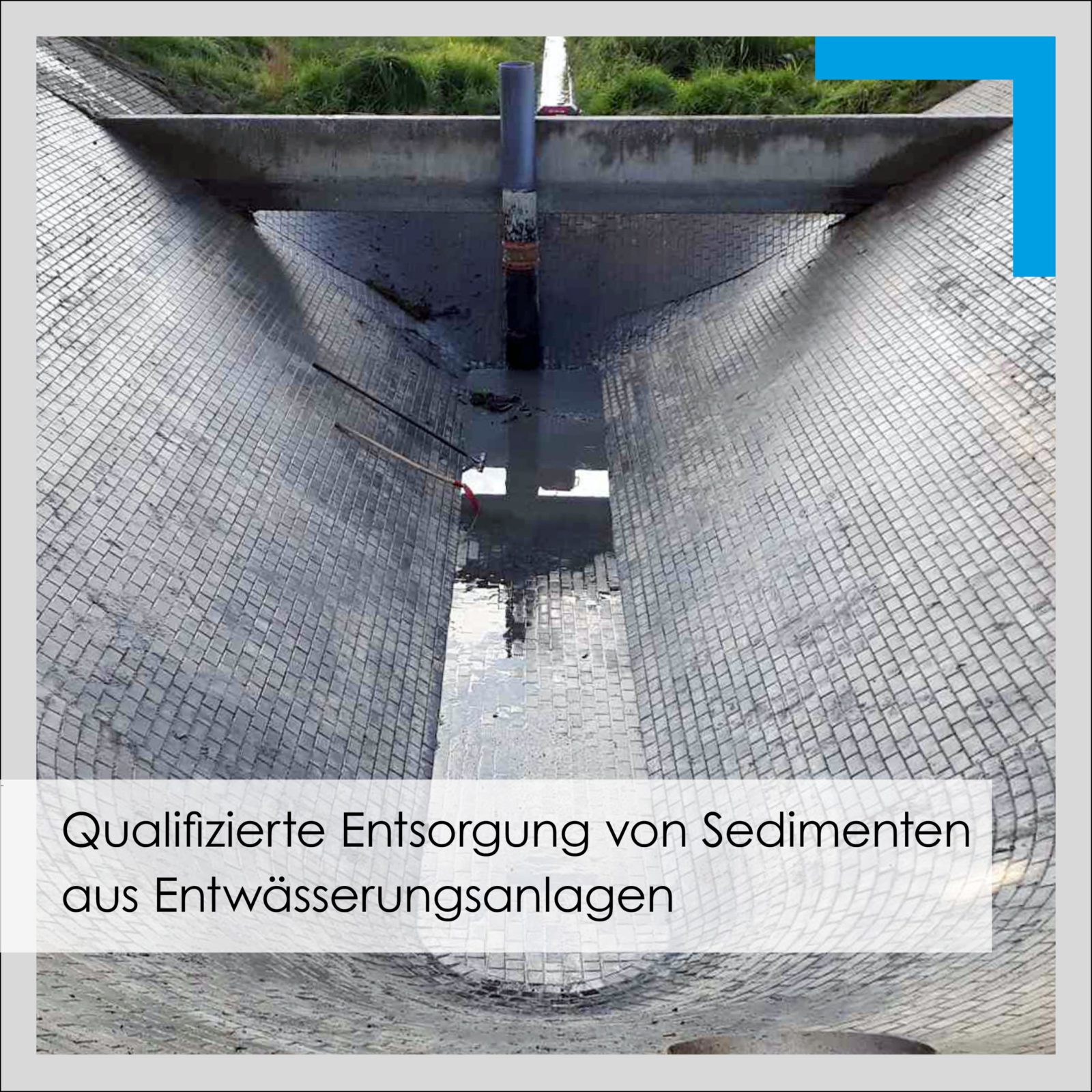Qualified disposal of sediments from drainage systems
Stormwater treatment facilities are an essential part of the drainage systems of trunk roads. The surface water accumulating on the carriageways and the associated ancillary facilities is collected and fed into the facilities. Here, particle-bound pollutants sediment along with the suspended matter. The sludge from the sedimentation plants has a high water content, which may preclude direct delivery to a landfill. Prior to disposal, it must be checked whether the intended disposal route requires sludge dewatering and which process is intended for this pre-treatment.
In order to maintain the functionality, the sedimentation areas and flow channels in the stormwater treatment plants must be cleared regularly in accordance with the generally recognised rules of technology and the water law approval notices. The sediments in the settling area and in the flow channels are mixtures of mineral components that contain impurities typical of roads. Prior to clearing, the sediments in the sedimentation basins must therefore be sampled and subjected to laboratory analysis.
Depending on the results of the investigation, the sediments from drainage systems are to be assigned to one of the two waste types:
- 17 05 06 dredged material other than that mentioned in 17 05 05
- 17 05 05* dredged material containing dangerous substances.
The waste codes also apply to sediments from separator systems for light liquids according to DIN 1999 if these are used for rainwater treatment.
The removal technique depends on the construction and accessibility of the drainage systems. The dry matter content determined in the laboratory analysis provides clues. This special feature must be pointed out in the invitation to tender for the clearing of the facilities. In order to achieve the "stab resistance" of the sludge required for landfilling, an additional process step must usually be provided. If additives, such as lime, are used for conditioning, the increase in mass contributes to an increase in disposal costs. Alternatively, it is possible to dewater the sludge on site in special treatment vehicles. Treatment plants for polluted soils or for industrial wastewater may also be suitable for acceptance.
#mullandpartner #engineeringforabettertomorrow #news 1TP5Disposal 1TP5Water
Business areas
Environmental and geotechnical engineering
Construction and project management
Renewable energies
Real estate development
Infrastructure
Water management
Societies
M&P Engineering Company
T&P Beratende Ingenieure
P&P Real Estate Consulting
P&B Real Estate Management
P&M Project Management
M&P Umwelttechnik
Contact

